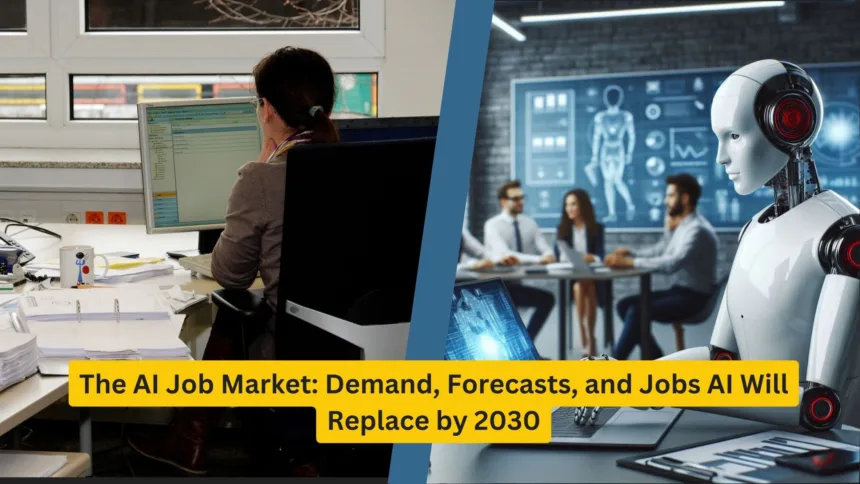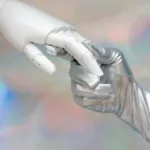Artificial Intelligence (AI) is revolutionizing industries and transforming the job market. As AI technologies advance, they bring both opportunities and challenges. This article explores the current demand for AI jobs, forecasts for the future, and the roles AI is likely to replace by 2030.
The Growing Demand for AI Jobs
The demand for AI professionals is skyrocketing. Companies across various sectors are seeking experts to help integrate AI into their operations. Key roles include data scientists, machine learning engineers, AI researchers, and AI ethicists. According to recent reports, the number of job postings for AI-related positions has increased significantly
Key Roles in AI
- Data Scientists: Analyze and interpret complex data to help companies make informed decisions.
- Machine Learning Engineers: Develop algorithms that enable machines to learn from data.
- AI Researchers: Conduct research to advance AI technologies.
- AI Ethicists: Ensure AI systems are developed and used ethically.
What Jobs Will AI Soon Replace?
AI is set to automate many tasks, particularly those that are repetitive and data-driven. Some jobs that AI is likely to replace soon include:
Customer Service Representatives
AI-powered chatbots and virtual assistants are becoming increasingly sophisticated, handling customer inquiries efficiently and reducing the need for human representatives.
Data Entry Clerks
AI can process and analyze large volumes of data much faster than humans, making data entry roles increasingly redundant.
Manufacturing Workers
Automation and robotics are transforming manufacturing processes, reducing the need for manual labor.
The Forecast for AI Jobs
The AI job market is expected to grow exponentially. According to industry forecasts, AI will create millions of new jobs while also transforming existing ones. By 2030, AI could contribute up to $15.7 trillion to the global economy
New Job Opportunities
AI is not just replacing jobs; it is also creating new ones. Some emerging roles include:
AI Trainers: Teach AI systems to perform specific tasks.
AI Maintenance Specialists: Ensure AI systems operate smoothly.
AI Policy Advisors: Develop policies to regulate AI technologies.
What Jobs Will AI Replace by 2030?
By 2030, AI is expected to replace several jobs, particularly those that involve routine tasks. However, it will also create opportunities for workers to upskill and transition into new roles.
Transportation and Logistics
Self-driving vehicles and drones are set to revolutionize transportation and logistics, reducing the need for drivers and delivery personnel.
Retail Workers
AI-powered checkout systems and inventory management tools are transforming the retail sector, reducing the need for cashiers and stock clerks.
Financial Analysts
AI algorithms can analyze financial data and make predictions more accurately than humans, potentially reducing the need for financial analysts.
Preparing for the AI-Driven Job Market
To thrive in an AI-driven job market, workers need to adapt and upskill. Key areas to focus on include:
Technical Skills: Learning programming languages and understanding AI frameworks.
Soft Skills: Developing critical thinking, creativity, and emotional intelligence.
Lifelong Learning: Continuously updating skills to stay relevant in a rapidly changing job market.
Conclusion
The AI job market is evolving rapidly, offering both challenges and opportunities. While AI will replace some jobs, it will also create new ones and transform existing roles. By staying informed and adaptable, workers can thrive in this dynamic landscape.









